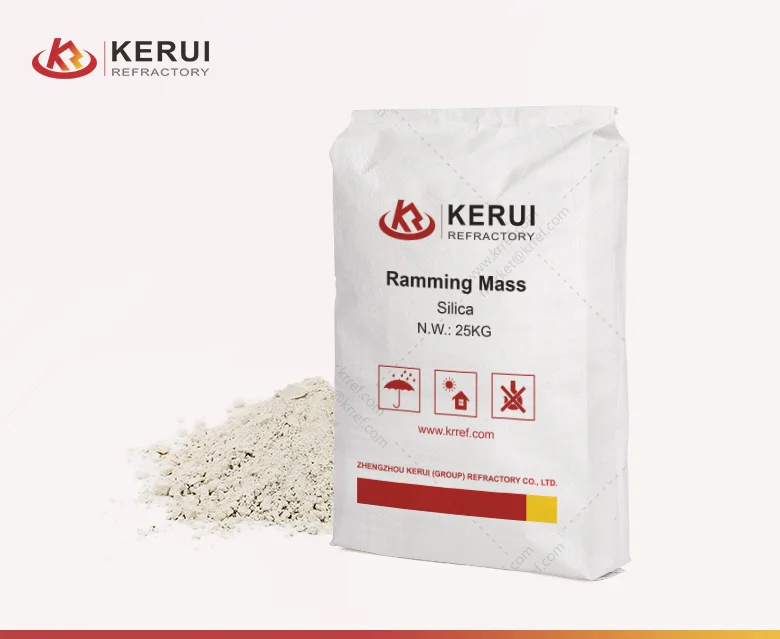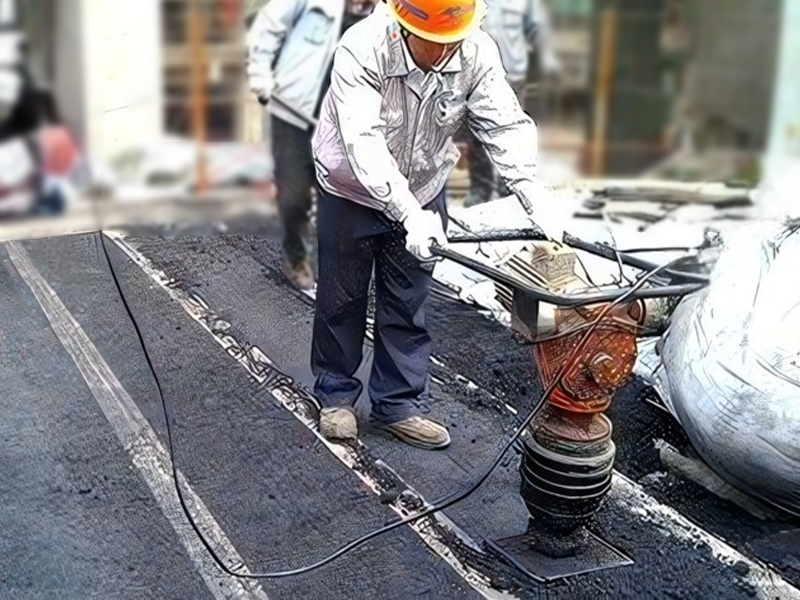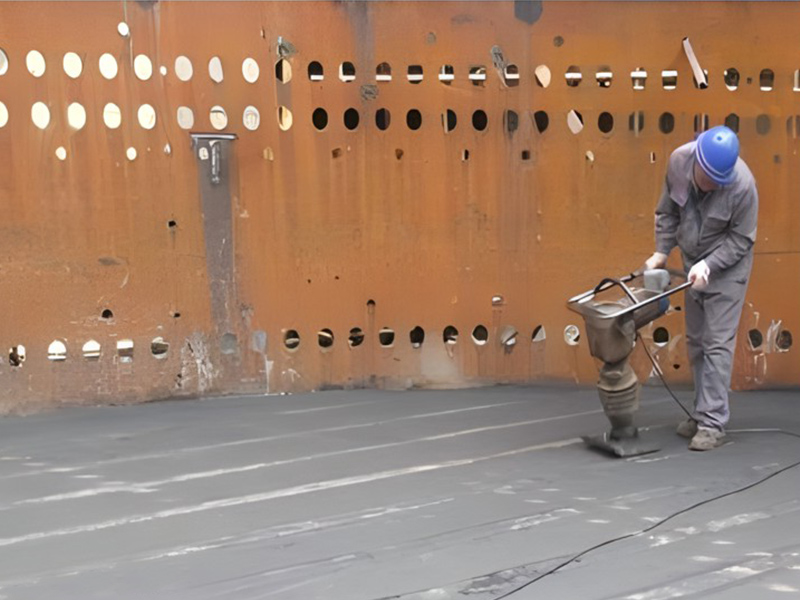Kerui Refractory ramming mass is a monolithic refractory material applied or compacted through ramming (either manually or mechanically) and hardened under high temperatures. It is composed of graded refractory aggregates, fines, binders, and additives, mixed with water or other liquids. Based on material composition, ramming masses can be alumina, silica, magnesia, dolomite, zircon, or silicon carbide-carbon. Chemically, they are classified into acidic, basic, and neutral types.

Types of Ramming Mass
Acidic Ramming Mass
Acidic ramming mass is a critical material in foundry production, composed of metallic oxides, silicates, clays, and graphite. When selecting, consider factors like strength, wear, and corrosion resistance. It’s prized for its physical and mechanical properties, making it ideal for various casting applications.
Basic Ramming Mass
Basic ramming mass is composed of basic oxides like magnesium oxide and calcium oxide, with binders and additives for cohesion and strength. It’s highly resistant to high temperatures and chemical erosion, making it suitable for steelmaking and other high-temperature processes.
Neutral Ramming Mass
Neutral ramming mass is composed of fused alumina, graphite micro powder, and binders. At high temperatures, silicon powder and carbon-based materials generate in-situ fibrous silicon carbide, improving slag resistance. This type of ramming mass provides strong resistance to chemical attack, thermal shock, and prolonged furnace life, making it ideal for electric furnace linings.
Application of Ramming Mass


Steel Industry
In the steel industry, Kerui refractory ramming mass is essential for lining induction furnaces and ladles. Acidic ramming mass, known for its high strength and wear resistance, is often used in steel production. It ensures the integrity of furnace linings during the intense heat and chemical reactions involved in steelmaking. Basic ramming mass is also widely utilized due to its superior slag resistance, helping to prolong the lifespan of the furnace.
Iron Industry
In iron foundries, our ramming masses are employed in the lining of cupolas and other melting equipment. Their ability to withstand high temperatures and resist corrosion makes them ideal for applications where molten iron is processed. The choice of ramming mass, whether acidic or basic, depends on the specific requirements of the casting process and the desired properties of the final product.
Non-Ferrous Metal Industry
Kerui’s Ramming mass is also utilized in the non-ferrous metal industry, particularly in the production of aluminum and copper. Neutral ramming masses are favored in these applications due to their excellent thermal stability and resistance to chemical attack. They provide effective lining solutions that enhance the performance and efficiency of melting furnaces, contributing to higher yields and better-quality metal products.
Other Applications
Beyond metals, our ramming mass finds applications in various high-temperature processes, including cement production, glass manufacturing, and waste incineration. Their ability to withstand harsh conditions and provide insulation makes them suitable for lining kilns, furnaces, and reactors in these industries.
Conclusion of Ramming Masses
In summary, Kerui refractory ramming mass is a crucial monolithic refractory in high-temperature industrial processes, offering durability and erosion resistance. By understanding the three types of ramming masses, industries can make the right choices to optimize their applications. Proper selection can enhance operational efficiency, reduce maintenance costs, and improve product quality in steel, iron, non-ferrous metal production, and other high-temperature environments.


